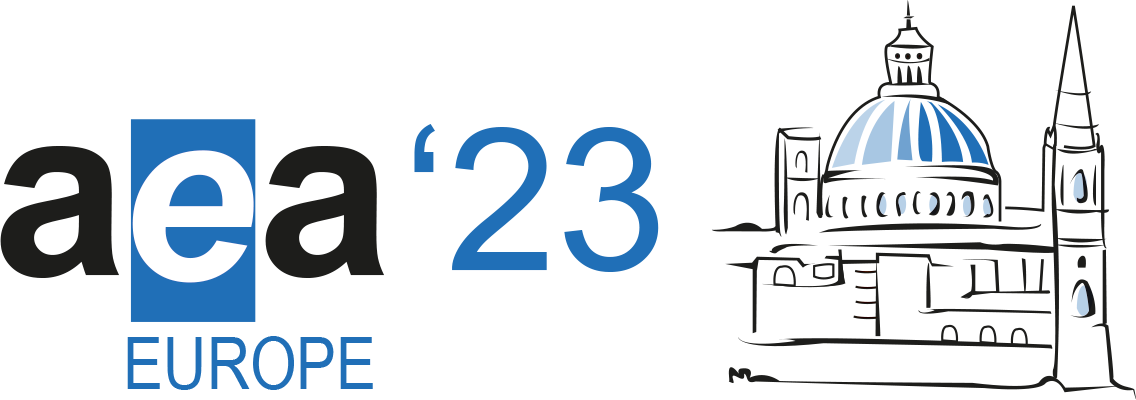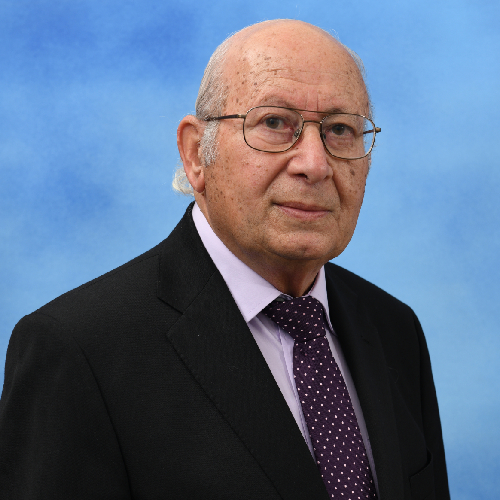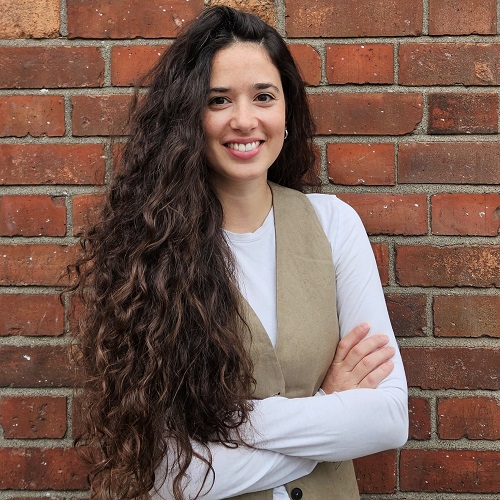SPEAKERS
Prof. Frank Ventura
Title: MATSEC Examinations: An eventful journey
Abstract: In 1988, the newly-elected government of Malta decided to end the reliance of the education system on the GCE examinations offered by UK examination boards. It set up the MATSEC Examinations Board whose remit was to set up a system of examinations that would replace the UK GCE Ordinary level and the GCE Advanced level examinations. These tasks presented formidable challenges regarding the required standards, equity, integrity and public confidence. The keynote address will elaborate on how the challenges were met in the first years of the operation of the MATSEC Examinations Board; the continued scrutiny by the schools, teachers, parents and the media; the introduction of vocational subjects; and the updates suggested in the evaluation reports published in 1998, 2005, 2010 and 2017.
Bio: Professor Frank Ventura is a key figure in the Maltese educational context. He contributed to the development of science education programs within the Faculty of Education, University of Malta, and spent many years training science teachers. He was also involved in the setting up of the MATSEC examinations system and he has overseen various assessment reforms. He has contributed to various publications on science education, environmental education, educational assessment, and on his lifelong interest in astronomy in culture.
Prof. Mary Richardson
Title: Many rivers to cross? Navigating the challenging terrains of assessment in education
Abstract: The one continuous factor in most education systems around the world seems to be change of one kind or another. Such changes might be invoked by decisions of a political, social, national, local, or even personal nature, but they share a common feature – an impact, somewhere, on the lived experience of students and their teachers. Change is not something that humans seem to like and when it affects a critical aspect of our lives, as educational assessment is, the anxiety and concerns about its value are brought into sharp focus. However, it doesn’t need to be this stressful and in this talk I will consider how we, as an assessment community:
Bio: Dr Mary Richardson is a Professor of Educational Assessment at the Institute of Education, University College London (UCL). She leads an MA in Assessment and supervises doctoral students on a range of themes related to assessment theory and practice. Mary’s work focuses on philosophical issues in assessment and her recent book published by UCL Press (2022) explored how public understanding of assessment needs improving; in 2023, her first work focusing on decolonisation and assessment is due for publication in the Journal of Philosophy of Education. She is currently leading the national reporting for TIMSS2023 for England and is engaged in research with the Centre for Holocaust Education (UCL) examining how teachers might assess curriculums focused on the Holocaust.
Prof. Anastasiya A. Lipnevich
Title: Lost and Found: Navigating the Maze of Instructional Feedback
Abstract: In this presentation, I will describe a series of studies that have investigated instructional feedback, exploring its mechanisms and the diverse (and often paradoxical) effects it has on various educational outcomes. I will delve into the underlying processes that contribute to the effectiveness of instructional feedback and discuss conditions that optimize its potential for enhancing student performance, learning, and individual characteristics. I will share research on assessment approaches employed by instructors and highlight cognitive biases that may influence assessment-related decisions made by both teachers and students.
Bio: Dr. Anastasiya A. Lipnevich is a Professor of Educational Psychology at Queens College and the Graduate Center of the City University of New York. Originally from Belarus, Prof. Lipnevich received her combined Master’s degrees in Clinical Psychology, Education, and Italian language from the Belarusian State Pedagogical University, followed by her Master’s in Counseling psychology from Rutgers University. She then earned her PhD in Educational Psychology (Learning, Cognition, and Development concentration), also from Rutgers University. After receiving her PhD, Anastasiya joined Educational Testing Service in Princeton, NJ as a post-doctorate research scholar. Anastasiya held visiting professorships, among others, at the University of Konstanz (Germany), University of Otago (New Zealand), National Institute of Education (Singapore), University of Trento (Italy); Universidad Autonoma de Madrid (Spain).
Dr. Vasiliki Pitsia
Kathleen Tattersall New Assessment Researcher Award 2023
Title: Investigating high achievement in mathematics and science in Ireland: An in-depth analysis of national and international assessment data
Abstract: In Ireland, while, on average, students have performed well on national and international assessments of mathematics and science, the low proportions of high achievers in these subjects are noteworthy. Given these patterns and the multifaceted benefits in individual and societal terms that expertise in mathematics and science has been associated with, policymakers in Ireland have begun placing an increasing emphasis on high achievement in these subjects. This emphasis has coincided with ongoing efforts during the last decade to raise interest and improve academic performance within the realm of science, technology, engineering, and mathematics (STEM) education.
Frank Ventura taught at the primary and post-secondary levels before joining the Department of Educational Studies at the Malta College of Arts Science and Technology in 1977. In 1978, this department became the Faculty of Education in the reformed University of Malta and he was given the responsibility of designing and teaching the science education course to BEd(Hons) and PGCE students. In 1988, Ventura was appointed Head of the Department of Pedagogy and Communication Studies and later the Department of Mathematics, Science and Technical Education in the Faculty of Education. Also in 1988, he was asked to help in the setting up of two systems of national examinations to replace the GCE examinations at the Ordinary and Advanced levels offered to Maltese students by UK examination boards. He became a member of the MATSEC Examinations Board of the University of Malta at its inception in 1991 and acted as the Principal Subject Area Officer (Sciences) on a part-time basis in the MATSEC Support Unit. In 1995, he was appointed Head of the Academic Division and later Chairman of the MATSEC Examinations Board in 2001, a post which he retained until his retirement in 2019. Ventura has contributed to various publications on science education, environmental education, educational assessment, and on his lifelong interest in astronomy in culture.
In 1988, the newly-elected government of Malta decided to end the reliance of the education system on the GCE examinations offered by UK examination boards, namely, the Ordinary level examinations for certifying 16-year-old students at the end of compulsory education and the Advanced level examinations which were used for admission to the University of Malta. It set up a board to consider the full implications of this decision and the actions that needed to be taken to put it into effect. The board consisted of members from the University of Malta, the government Department of Education and the schools working as a partnership under the chairmanship of the Rector of the University. In 1991, this board was officially established as the Matriculation and Secondary Education Certificate Examinations (MATSEC) Board under the authority of the University Council through the Senate. The remit of the board was (a) to set up a system of examinations that would certify at least 80% of the cohort of students at the end of compulsory education, and (b) to replace the GCE Advanced levels by a system modelled on the International Baccalaureate Diploma system of examinations for admission to the university.
Naturally, these tasks presented formidable challenges regarding the required standards, equity, integrity and public confidence. Education officials openly doubted whether the university can have a structure to run these systems professionally. Their fears were based on the lack of personnel with expertise in educational assessment and the ‘small island state mentality’ where everybody knows everybody else giving rise to concerns about security, corruption, and nepotism. These concerns were also fuelled by the suspicion that the university would control the secondary school curriculum as the UK examination boards had effectively done for many years. Notwithstanding these doubts, also in 1991, the university set up a MATSEC Support Unit with an academic and an administrative division from members of staff to take responsibility for the day-to-day running of the examinations under the direction of the university Registrar.
After lengthy discussions internally, with the Ministry of Education and the Malta Union of Teachers, the Secondary Education Certificate (SEC) system of examinations for 16+ was launched in 1992 and the first new format examinations in 30 subjects were held in May 1994. These offered tiered papers, an extension of the grading scale to cover a wide range of abilities, and the introduction of oral examinations in languages and coursework in several subjects. The reaction by the schools, especially the private schools, was cautious as only 50.5% of the 16-year-old cohort sat for these examinations in the first year. This percentage rose gradually to 81.3% in 2005 and continued to exceed the projected 80% level since then. Indeed, this percentage exceeded the 90% level after the inclusion of vocational subjects at SEC level in 2014 with parity of esteem with the ‘traditional’ SEC subjects. This innovation took place following discussions between the University, the Directorate of Education of the Ministry of Education and the Malta College of Science and Technology (MCAST). A technical working group with members from the MATSEC Support Unit and MCAST discussed the format of the new syllabi and devised an interesting assessment scheme to ensure the acceptance of parity of esteem of the vocational subjects with the ‘traditional’ subjects.
Meanwhile, work on the replacement of the GCE Advanced levels by IB-type examination led to the launch of the Matriculation Certificate (MC) system of examinations in 30 subjects at Advanced level and 30 subjects at Intermediate level. Candidates for the MC needed to sit for two Advanced levels, three Intermediate levels and Systems of Knowledge also set at Intermediate level in the same session of examinations. The choice of subjects had to include a language, a science, and a humanities or a business subject. This innovation was launched in June 1994 but the first MC examinations took place in 1997 since the schools needed more time to implement the necessary changes.
From a different perspective, the initiative of creating a local system of examinations at this level can be interpreted as an act of decolonisation. In effect, however, the colonial mentality, where the foreign product is always considered better than the local one, does not disappear by a simple declaration of independence. Several instances of the continued reliance on English sources ranging from the students’ use of English textbooks meant for GCE subjects at Ordinary and Advanced levels in many SEC and MC subjects to references to the GCSE and GCE Mandatory Code of Practice and other documents for producing a local code of practice in the conduct of examinations and assessments.
The keynote address will elaborate on how the challenges were met in the first years of the operation of the MATSEC Examinations Board; the continued scrutiny by the schools, teachers, parents and the media; the introduction of vocational subjects; and the updates suggested in the evaluation reports published in 1998, 2005, 2010 and 2017.
The one continuous factor in most education systems around the world seems to be change of one kind or another. Such changes might be invoked by decisions of a political, social, national, local, or even personal nature, but they share a common feature – an impact, somewhere, on the lived experience of students and their teachers. Change is not something that humans seem to like and when it affects a critical aspect of our lives, as educational assessment is, the anxiety and concerns about its value are brought into sharp focus. However, it doesn’t need to be this stressful and in this talk I will consider how we, as an assessment community:
- should plan effectively for change in our practice
- should create networks to share practice and improve understanding of assessment
- should build bridges that invoke trust within and between those networks
As the philosopher Thomas Paine said “We have it in our power to begin the world over again” and we have the expertise and knowledge as a community to enact substantive and valuable change – not necessarily to begin again, but to build alternatives to systems that don’t benefit individuals, societies and nations. We can take this challenge and use it to continue to improve the role of assessment in education.
In this presentation, I will describe a series of studies that have investigated instructional feedback, exploring its mechanisms and the diverse (and often paradoxical) effects it has on various educational outcomes. I will delve into the underlying processes that contribute to the effectiveness of instructional feedback and discuss conditions that optimize its potential for enhancing student performance, learning, and individual characteristics. I will share research on assessment approaches employed by instructors and highlight cognitive biases that may influence assessment-related decisions made by both teachers and students.
Further, I will propose strategies for equipping students with the necessary tools to generate self-feedback effectively, promoting autonomous learning.
The studies discussed in this talk will encompass a wide range of contexts, cultures, and academic disciplines, emphasizing potential pitfalls with generalizations of findings. Additionally, I will outline potential avenues for future research and highlight some of the current challenges faced by the field. By addressing these challenges, we can advance our understanding of instructional feedback and its implications for educational settings.
Dr. Anastasiya A. Lipnevich is a Professor of Educational Psychology at Queens College and the Graduate Center of the City University of New York. Originally from Belarus, Prof. Lipnevich received her combined Master’s degrees in Clinical Psychology, Education, and Italian language from the Belarusian State Pedagogical University, followed by her Master’s in Counseling psychology from Rutgers University. She then earned her PhD in Educational Psychology (Learning, Cognition, and Development concentration), also from Rutgers University. After receiving her PhD, Anastasiya joined Educational Testing Service in Princeton, NJ as a post-doctorate research scholar. Anastasiya held visiting professorships, among others, at the University of Konstanz (Germany), University of Otago (New Zealand), National Institute of Education (Singapore), University of Trento (Italy); Universidad Autonoma de Madrid (Spain).
She co-edited two books (and has one under contract)— Psychosocial Skills and School Systems in the 21st Century (Lipnevich, Preckel, & Roberts, 2016; Springer) and The Cambridge Handbook of Instructional Feedback (Lipnevich & Smith, 2018; Cambridge University Press) and co-authored a recent book — Instructional Feedback: The Power, The Promise, The Practice (Smith, Lipnevich, Guskey, 2023; Corwin Press) along with numerous articles and book chapters.
Prof. Lipnevich received the Early Career Award and the Best Article Award from Division 3 (Experimental Psychology) of the American Psychological Association, an international mentorship award from the European Research Council, along with many other professional accolades. Her research interests include instructional feedback, educational assessment, alternative ways of cognitive and non-cognitive assessment, and the role of psychosocial characteristics in individuals’ academic and life achievement.
In Ireland, while, on average, students have performed well on national and international assessments of mathematics and science, the low proportions of high achievers in these subjects are noteworthy. Given these patterns and the multifaceted benefits in individual and societal terms that expertise in mathematics and science has been associated with, policymakers in Ireland have begun placing an increasing emphasis on high achievement in these subjects. This emphasis has coincided with ongoing efforts during the last decade to raise interest and improve academic performance within the realm of science, technology, engineering, and mathematics (STEM) education.
Despite this policy attention, research on high achievement in mathematics and science nationally, but also internationally, has been particularly scarce. In an attempt to provide research evidence that could add further impetus to the ongoing efforts, this study conducted an in-depth investigation of high achievement across education levels, student cohorts, and subjects using data from the Programme for International Student Assessment (PISA), the Trends in International Mathematics and Science Study (TIMSS), the Progress in International Reading Literacy Study (PIRLS), the Irish National Assessments of Mathematics and English Reading (NAMER), and the Irish State Examinations (Junior and Leaving Certificates). The study aimed to (i) examine the magnitude and consistency of the issues related to high achievement, (ii) build profiles of high-achieving students, and (iii) evaluate the contribution of various contextual characteristics stemming from students, their families, teachers, and schools in the prediction of high achievement in mathematics and science in a multivariate and multilevel context.
The findings indicated that Ireland’s percentages of high achievers and scores among students at the highest national percentiles of performance in mathematics and science have been significantly lower compared to countries with similar average performance. These issues, which were consistent across years and assessments, were more apparent for mathematics than science and at post-primary than at primary level, while similar patterns were not detected for reading. It was also found that variables related to students’ self-beliefs, dispositions, engagement, learning approaches, and socioeconomic background were consistently associated with high achievement in mathematics and science. Overall, the significant role of students’ homes and families in predicting students’ chances of being high achievers in the two subjects was highlighted. In turn, this indicated that further efforts to enhance collaboration between teachers, schools, and parents may be warranted if progress in the area of high achievement in mathematics and science is to be made. The implications of these findings for policy and practice within the Irish context, the limitations of the study, and recommendations for future research will be discussed.




